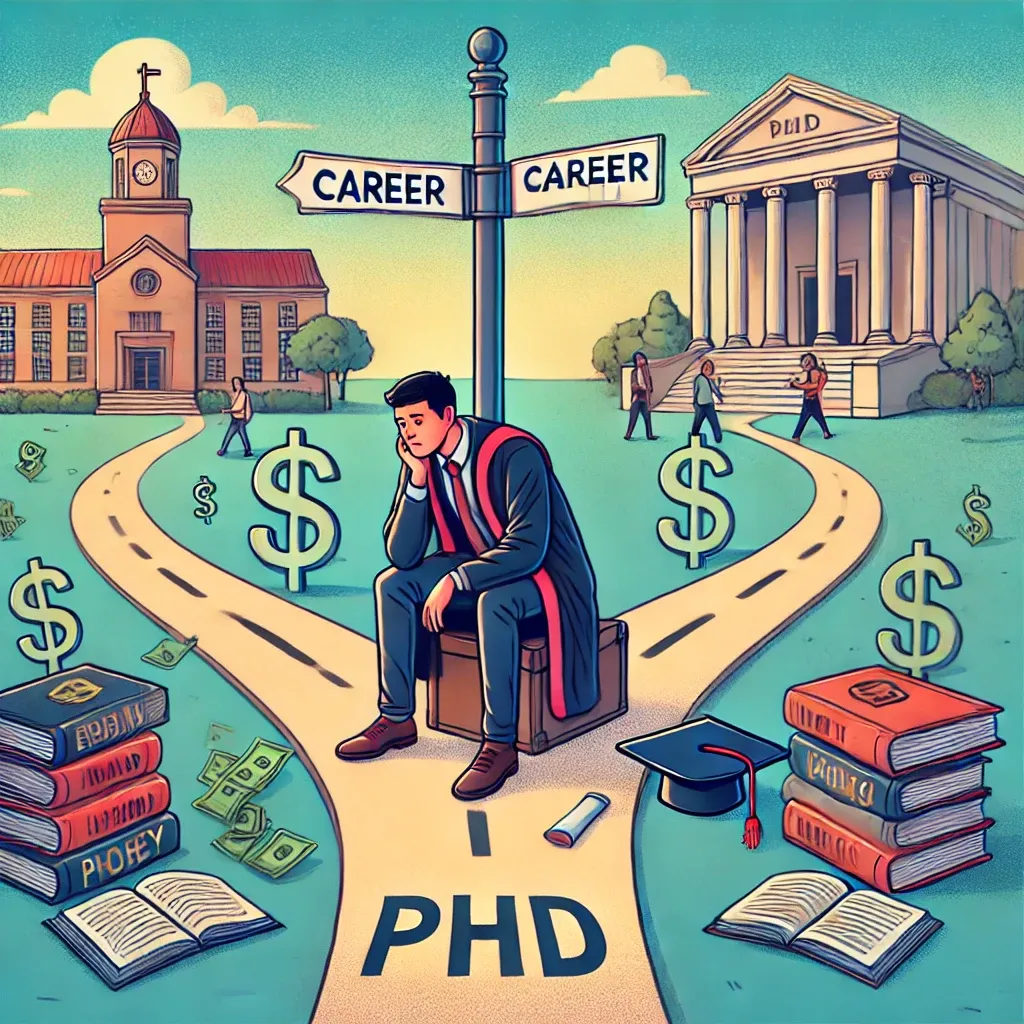The Real Reasons Why People Don't Finish Their PhD

There are many reasons why people cannot finish a PhD and let me tell you this: it's not because they are not capable. If you have reached the edge of a PhD candidature and you're ready to start, you deserve to be there. You have earned it. However, numerous factors throughout the four, five, six, seven, or even ten years of a PhD program can make one decide that enough is enough.
Understanding the True Cost
The number one reason I've seen people not finish their PhD is that, at some point during the process, they understand the true cost of doing a PhD and decide it is not worth it for them. When you first start, you probably don't know too many PhD students, post-docs, or professors. As you build relationships with others in the lab, researchers, and supervisors, you begin to grasp the true cost of a PhD.
This cost can be manifold:
- Opportunity Cost: Not building a career or professional skills, and not earning money early on.
- Monetary Cost: Sitting at a stipend level that barely meets living expenses.
- Emotional Cost: Realizing that the career you aimed for might not bring the happiness you expected.
Many PhD students see their peer's earning money, advancing their careers, and achieving a work-life balance, which makes them question their own choices. The reality of academic life, with its struggles and uncertainties, often contrasts starkly with initial expectations.
Leaving to Write Up
Another significant reason people give up on their PhDs is when they leave to write up. After years of experiments and research, many students find themselves needing a job to support themselves financially. They promise to write their thesis on weekends or evenings but often struggle to find the motivation or time once they start working. The allure of a steady income and a more balanced life often outweighs the desire to complete the PhD.
Change in Personal Circumstances
Life happens, and sometimes, major changes in personal circumstances can derail a PhD. PhD students are whole beings with families, friends, anxieties, and hopes. A significant life event, whether tragic or otherwise, can make them reassess their priorities. They might decide to pursue something that brings them more immediate happiness or stability, such as starting a new career or following a passion project.
Poor Topic Selection
Selecting the wrong topic can also be a major obstacle. If the research topic is too narrow, too broad, too hard, or simply uninteresting, it can make the PhD journey unbearably difficult. A supportive supervisor and university should allow for adjustments, but sometimes the initial topic choice can set a path that is hard to deviate from. This lack of clear direction can cause many to lose sight of their goals and give up.
The Challenge of Persistence
Lastly, the inherent challenges of a PhD can lead to burnout. The ups and downs, the constant obstacles, and the stress can make it feel like an insurmountable task. The key to overcoming these challenges is maintaining forward momentum and leaning into the struggles. However, not everyone has the resilience to persist, and many understandably choose to stop.
In conclusion, there are many valid reasons why people do not finish their PhDs, ranging from understanding the true cost to life changes and poor topic selection. Each reason is deeply personal and valid, reflecting the complex journey of a PhD student.
